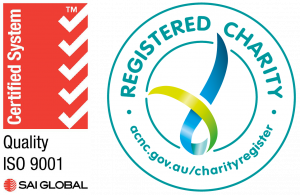COMPASS points in the right direction for better mental health care for children
Picture: Shutterstock.
Before the emergence of COVID-19, hospitals and primary health clinicians in Victoria had noted a sustained increase in children with mental health challenges presenting to GPs and hospital emergency departments.
The arrival of the pandemic not only exacerbated and accelerated the issue, it placed significant additional burdens on clinicians who were also struggling to meet the surge in demand caused directly by the virus.
The issues underpinning the effective treatment of child mental health have always been complex, and sensitive. They include specialists unable to take on new paediatric patients, long wait times to access specialist care, fragmented care, clinicians unable to access child psychiatry expertise and – perhaps not surprisingly – a lack of confidence among some GPs about how best to treat childhood mental health conditions.
Investigate a more integrated system approach …
In the face of the pandemic, the challenge for the health system was how to tackle these largely structural issues. With demand ballooning, the key task was how to work more efficiently.
This approach was very much in line with a key recommendation of the Royal Commission into Victoria’s Mental Health System: to build “a responsive and integrated system with community at its heart”.
To pursue it, NWMPHN partnered with the Royal Children’s Hospital’s (RCH) Health Services Research Unit and mental health service to investigate a more integrated system approach. The aims were to strengthen access to paediatric mental health care and reduce the burden on specialist services and hospitals.
The result was a project called COMPASS, the acronym standing for “Connecting mental health paediatric specialists and community services”. The pilot for COMPASS ran between March and June in 2021, at the height of the pandemic. Assessments of its effects continue today, tracking long-term improvements in treatment, and a sustained decrease in avoidable child mental health ED presentations.
The project is a collaborative model comprising 4 elements:
A community of practice (CoP) involving a paediatric psychiatrist. Guided by RCH child and adolescent psychiatrists, sessions ran fortnightly and were attended by 59 local GPs, psychologists, paediatricians, social workers, mental health nurses, and mental health occupational therapists in paediatric mental health care. CoPs ran in 2021, and 2022.
A child psychiatry secondary consultation service. In April 2021, the RCH established a child psychiatry consultation liaison service to GPs and community-based paediatricians within the NWMPHN region. It provided advice on diagnostic assessment, risks, management, and referral options.
During a two-week period 22 clinicians accessed secondary consultations. 100 per cent of cases were referred back to the clinicians, thus avoiding Child and Adolescent Mental Health Service or ED presentations. Total cost was $4074. Child and adolescent mental health service costs would have been $5050 more.
Improved communication with children seeking help …
Support to community-based mental health clinicians. A senior RCH mental health clinician was made available to support NWMPHN commissioned services through primary and secondary consultation, reflective practice, education sessions and training in evidenced-based practice and screening tools.
Improved referral pathways and information sharing between RCH triage and NWMPHN telephone assessment and referral services. A Memorandum of Understanding was established, supporting better exchange, including for Head to Health.
Each measure produced a verifiable improvement. Clinicians in the CoP all recorded – via interviews and surveys – significant increases in their knowledge and confidence to manage paediatric mental health conditions.
The true impact of COMPASS is revealed by the cumulative improvements arising from the integration of all the measures.
Evaluation of the pilot program revealed that it:
- built existing workforce capability;
- shifted appropriate care to lower cost settings, thus increasing capacity in specialist settings;
- improved communication with children seeking help, and their parents;
- enabled earlier identification, diagnosis and access to treatment;
- and started to join up the fragmented care system.
COMPASS offers a model that can be translated to other settings, including adult mental health. It can strengthen regional system relationships and practice between primary and tertiary services enabling practitioners to operate at the top of their scope, improve access and use available resources more efficiently.
Our STORIES
HealthPathways Melbourne: the online, handy source of truth for GPs and other clinicians
Keep up to date with the latest news and publications, funding opportunities, careers and upcoming events at NWMPHN.

